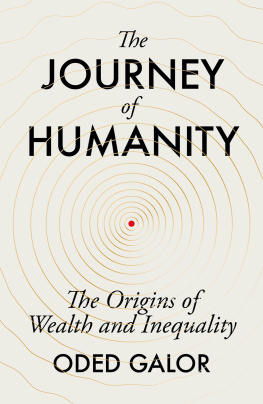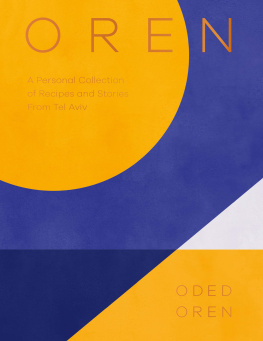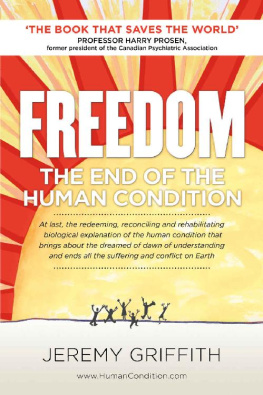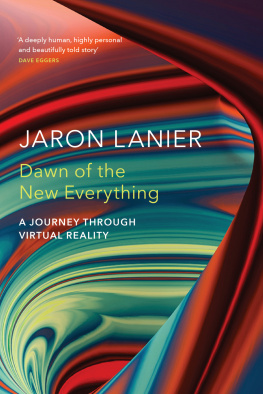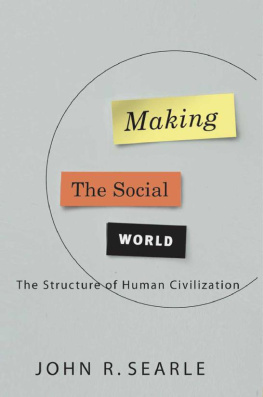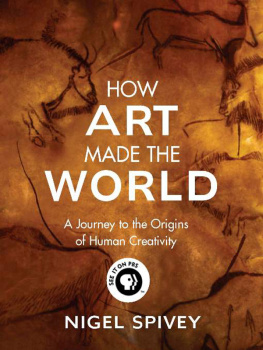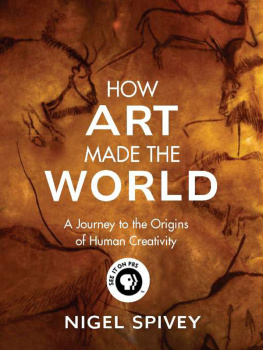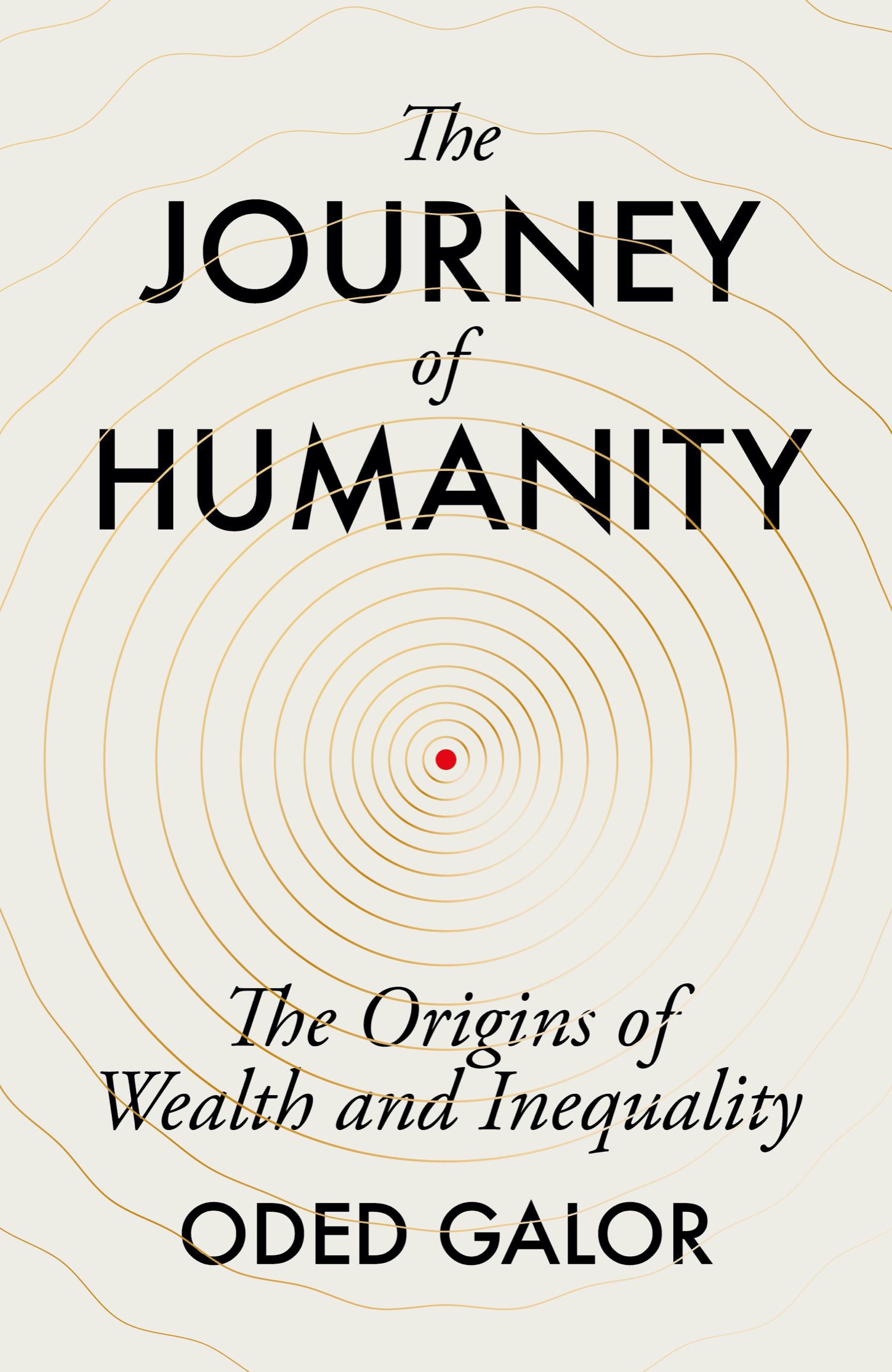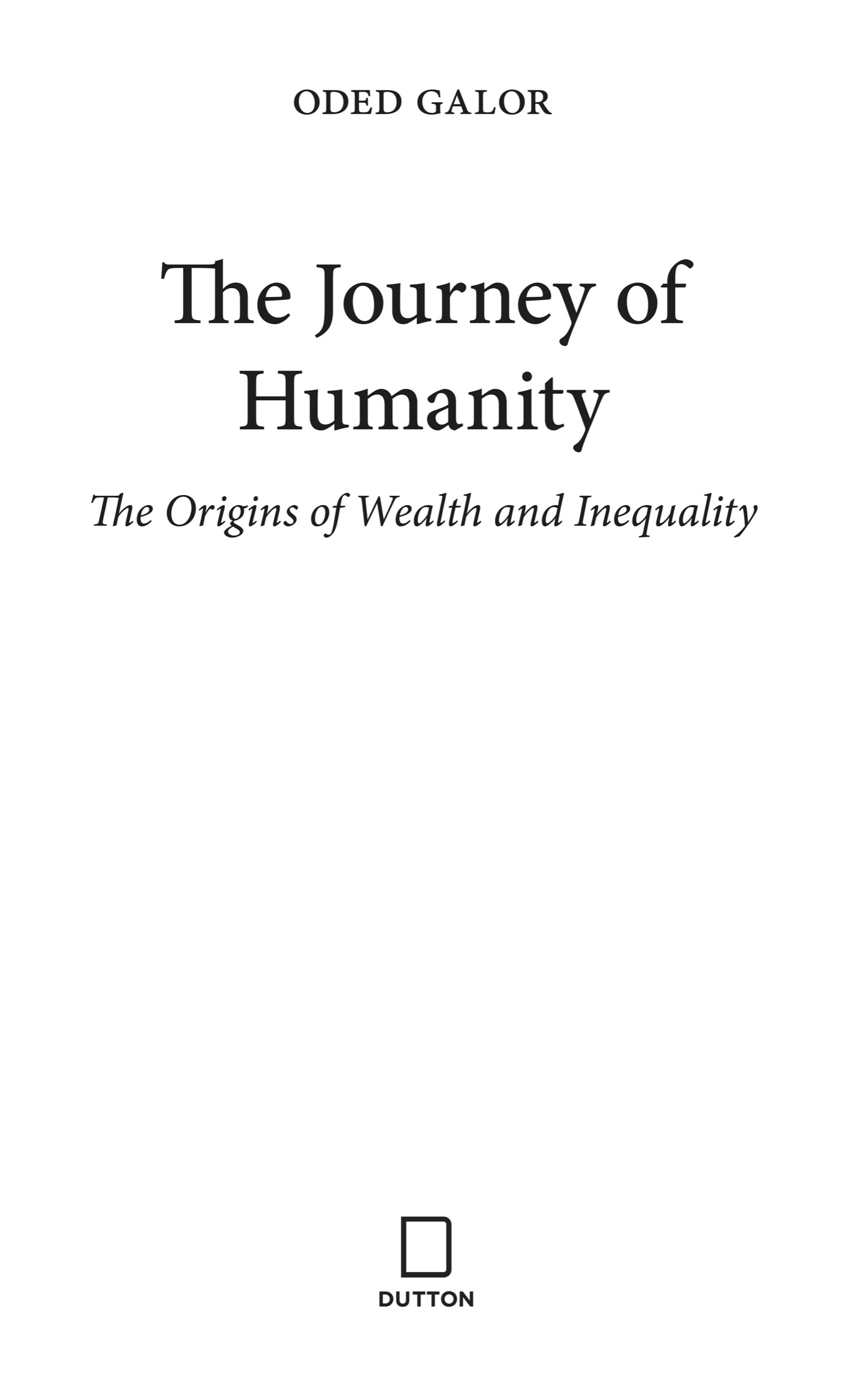
An imprint of Penguin Random House LLC
penguinrandomhouse.com
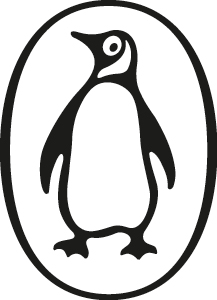
First published in the United States of America by Dutton, an imprint of Penguin Random House LLC, 2022.
Adapted from The Journey of Humanity, first published in Hebrew in Israel by Kinneret Zmora-Bitan Dvir, Israel, in 2020. The Journey of Humanity copyright 2020 by Oded Galor.
Copyright 2022 by Oded Galor
Illustrations copyright 2022 by Ally Zhu
Penguin supports copyright. Copyright fuels creativity, encourages diverse voices, promotes free speech, and creates a vibrant culture. Thank you for buying an authorized edition of this book and for complying with copyright laws by not reproducing, scanning, or distributing any part of it in any form without permission. You are supporting writers and allowing Penguin to continue to publish books for every reader.
DUTTON and the D colophon are registered trademarks of Penguin Random House LLC.
This book is based on numerous contributions of the author to unified growth theory and to the exploration of the role of deep rotes of comparative development. An earlier version of this book was written jointly in Hebrew, with Dr. Ori Katz, and was translated to English by Eylon Levy, before being modified.
Cover design by Luke Bird
Figures designed by Darren Bennett.
Adapted for ebook by Kelly Brennan
library of congress cataloging-in-publication data
has been applied for.
ISBN 9780593185995 (hardcover)
ISBN 9780593186015 (ebook)
While the author has made every effort to provide accurate telephone numbers, internet addresses, and other contact information at the time of publication, neither the publisher nor the author assumes any responsibility for errors or for changes that occur after publication. Further, the publisher does not have any control over and does not assume any responsibility for author or third-party websites or their content.
pid_prh_6.0_139577568_c0_r0
To Erica
Contents
Mysteries of the Human Journey
A squirrel scurries along the windowsill of a Venetian Gothic structure at Brown University. It pauses for a moment and takes a curious peek at a peculiar human being who is spending his time writing a book, rather than devoting his energy as he should to foraging for food. This squirrel is a descendant of those who scampered through North Americas virgin forests thousands of years ago. Like its distant ancestors and contemporaries around the world, the squirrel spends most of its time gathering food, evading predators, searching for mates and seeking shelter from precarious weather conditions.
And in fact for most of human existence, from the emergence of Homo sapiens as a distinct species nearly 300,000 years ago, the basic thrust of human life was remarkably similar to that of a squirrel, defined by the pursuit of survival and reproduction. Living standards bordered on the subsistence level and scarcely varied over the millennia or across the globe. But perplexingly, over the past few centuries, our mode of existence has been drastically transformed. From a historical standpoint, humankind has experienced a dramatic and unprecedented improvement in the quality of life virtually overnight.
Imagine if some residents of Jerusalem in the time of Jesus, 2,000 years ago, were to step into a time machine and travel to the Ottoman-ruled Jerusalem of 1800. They would undoubtedly be impressed by the magnificent new city wall, the considerable population growth and the adoption of new innovations. But although nineteenth-century Jerusalem was quite different from its Roman predecessor, our time travellers would adjust with relative ease to their new surroundings. Admittedly, they would have to adapt their behaviour to the new cultural norms, but they would be able to maintain the trades they had practised at the dawn of the first century and sustain themselves easily enough, since the knowledge and skills acquired in ancient Jerusalem would still be pertinent at the turn of the nineteenth century. They would also find themselves vulnerable to similar perils, illnesses and natural hazards as those endured in the Roman period, and their life expectancies would hardly alter.
Envision, however, the experience of our time travellers if they were whisked away in our time machine again, just another two hundred years ahead, to early-twenty-first-century Jerusalem. They would be utterly astounded. Their skills would now be obsolete, formal education would be a prerequisite for most occupations, and technologies that might seem like witchcraft would be daily necessities. Furthermore, as numerous fatal diseases of the past would have been eradicated, their life expectancy would instantly double, requiring an entirely different mindset and longer-term approach to life.
The gulf between these eras makes it difficult to conceive the world we left behind not so long ago. As the seventeenth-century English philosopher Thomas Hobbes put it bluntly, human life was nasty, brutish, and short. At the time, a quarter of newborns died of cold, hunger and assorted illnesses before reaching their first birthday, women often perished during childbirth, and life expectancy rarely exceeded forty. It was a world engulfed in darkness after the disappearance of the sun over the horizon, a place where women, men and children devoted long hours to ferrying water to their homes, washed infrequently, and spent the winter months in smoke-filled homes. A time period in which most people lived in far-flung rural villages, rarely ventured from their birthplace, survived on paltry and monotonous diets, and could neither read nor write. A dismal era when an economic crisis did not simply demand belt-tightening, but rather led to mass starvation and death. Many of the daily hurdles that concern individuals in the present day pale in comparison to the hardships and tragedies faced by our not-so-distant forebears.
It has long been the prevailing wisdom that living standards have risen incrementally over the entire course of human history. This is a distortion. While the evolution of technology has indeed been a largely gradual process, accelerating over time, it has not resulted in a corresponding improvement in living conditions. The astounding ascent in the quality of life in the past centuries has in fact been the product of an abrupt transformation.
Most people of a few centuries ago led lives comparable to those of their remote ancestors and most other individuals around the globe millennia ago, rather than to those of their current descendants. The living conditions of an English farmer at the turn of the sixteenth century were similar to those of an eleventh-century Chinese serf, a Mayan peasant fifteen hundred years ago, a fourth-century BCE Greek herder, an Egyptian farmer 5,000 years ago, or a shepherd in Jericho 11,000 years ago. But since the dawn of the nineteenth century, a split second compared to the span of human existence, life expectancy has more than doubled, and per capita incomes have soared twenty-fold in the most developed regions of the world, and fourteen-fold on Planet Earth as a whole (Fig. 1).

